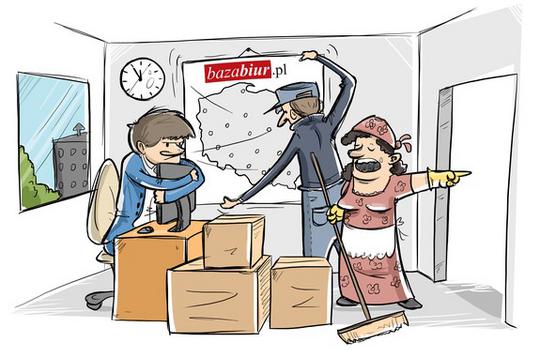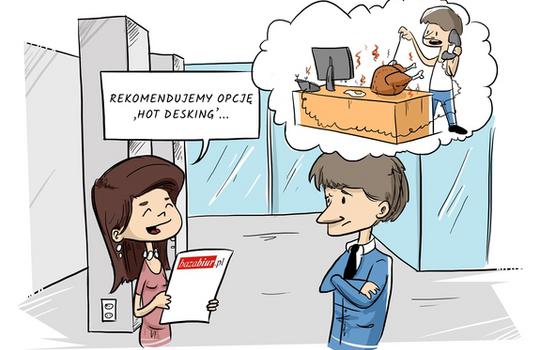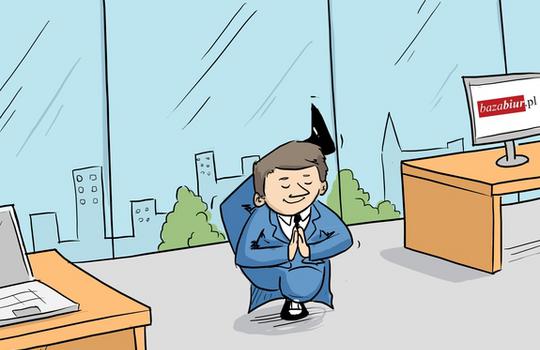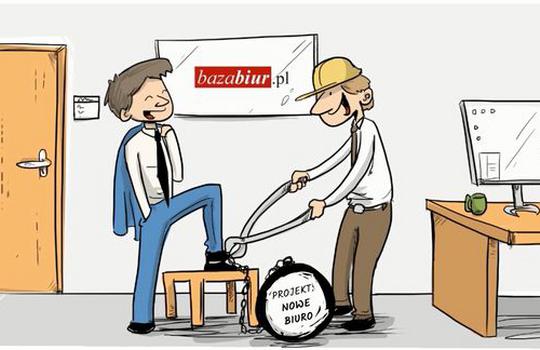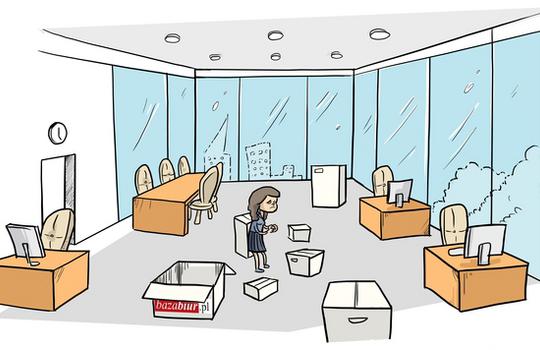“To be or not to be? That is the question.” These are the words that start the most famous monologue in the history of literature. Nowadays, many office tenants ask a similar question – to leave or not to leave? Renegotiation or relocation? In my article, I will provide arguments for conducting renegotiations of lease agreements as well as relocation, that is to say, selecting a new office.
First of all, we should not exclude any of these options. My experience shows that tenants are too often attached to their decision to either stay or leave a space before they even start the process of evaluating available scenarios. It would be best if each large company (occupying 2,000 sq m of office space or more) could start such a process at least 18-24 months before their current lease agreement expires. Such advance planning provides the opportunity to achieve better results – significant freedom in selecting available solutions and the ability to conduct the whole evaluation calmly and thoroughly.
Analysis – all pros and cons
An analysis should start from describing the requirements based on our existing office. What do we like in our current office and what do we want to change? Does our office meet the corporate regulations, eg. in terms of working comfort? Which office and where are our competitors located? How does this influence the recruitment of new employees as well as our clients’ perspective? Are changes necessary?
Many tenants conduct a working environment diagnosis of their offices in terms of both practical and technical aspects. While considering staying or changing location, an experienced advisor very often conducts a domicile analysis of key employees.
Furthermore, it is worth enquiring about changes planned in the areas adjacent to our current location - what will be built, what improvements in infrastructure and communication are planned, what is the technical standard of our building compared to newly developed schemes. And maybe the most crucial question of all: what does the office market have to offer?
What are we most afraid of?
My long-standing experience gained on the office market shows that tenants’ anxieties often boil down to fear of change. This, in my opinion, is completely natural behavior. Many like to feel safe and unknown situations generate stress. Therefore, what is the easiest scenario?
Recently, I participated in two major transactions – one company occupying 10,000 sq m for dozen or so years decided to relocate into a modern building in a new and completely different location. The second, occupying ca 5,000 sq m in the same location decided to remain there.
In both cases we thoroughly analyzed each argument for and against. In the first case, the argument prompting the company to change location was the “getting tired of the old office” one, and the fact that the space’s image did not comply with modern standards in the eyes of the employees. Naturally, renovation and rebuilding of the office were considered. However, it turned out that the logistics of such an enterprise would include major “turbulences” in the company’s day-to-day operations. In the second case, the most profitable option was to remain. The office required only slight adjustments to employees’ demands and it was relatively easy to conduct a partial rearrangement of the space. Furthermore, the decision to remain was also encouraged by the fact that it allowed the tenant to avoid the often complicated approval procedure from the corporation’s board members required in office relocation. In addition, the transaction’s financial conditions were of crucial importance as well.
Market – where's the most, where's the least
Along with an analysis of the abovementioned elements, a tenant should also 'get up to speed' with current market conditions. In Warsaw alone, there will be 320,000 sq m of modern office space commissioned for use in 2015. Outside Warsaw, the highest amount of office space is being developed in Wrocław (ca 160,000 sq m), Kraków and the Tri-City. Overall, office markets outside Warsaw in Poland can have up to 450,000 sq m coming on to their markets, most of it in Kraków, the Tri-City and Wrocław.
Is it enough for a tenant to only have knowledge about the numerous offers available? Are we properly “equipped” in order to freely move around the market? The answer is: definitely no. The tenant is not interested in the whole market, but in “the one” building that will meet most (or all) of their demands. This requires expertise and an excellent knowledge of the situation of each developer as well as each building selected by the tenant. It is good to know with whom the developer negotiates with on the building and what effect this may have on our negotiations. Furthermore, it is good to know at what phase of the investment’s cycle the building’s owner will be at their most or least flexible in negotiations. Where will they 'stand their ground' and where will they 'give ground'?
We want savings
This word appears in each process. How to obtain savings? Rent cost reduction is not the only possibility. Very often tenants encounter numerous and creative landlords’ ideas, ranging from financial contributions, space finishing budgets to possibilities of limiting leased space thanks to, for example, sharing conference rooms. During the negotiations recently conducted by JLL’s team, we along with a client, decided that we would try to obtain 25-27% savings in office space rent costs. We were able to achieve a reduction in the base rent from 15,75 EUR to ca 10 EUR of effective monthly rent per one sq m. Therefore, savings of nearly 40% were achieved. Today’s market situation especially encourages such flexibility.
Focus on the details
While conducting both analyses and negotiations with the building’s current and future owner, it is worth focusing on details. With strict competition among landlords fighting for clients, comparing available offers may very often become difficult. Especially if we consider a building's technical aspects and finishing standards. Therefore, help from advisors seems indispensable in this process.
As I mentioned at the beginning of the article, we cannot exclude any of these scenarios. There are older buildings that are excellently managed, their owners invest huge amounts of money in modernization and communication with tenants is conducted perfectly. On the other hand, a landlord that does not invest in his building can offer us a lower rent. The most important thing is to consider the different options and choose the best one for you.


